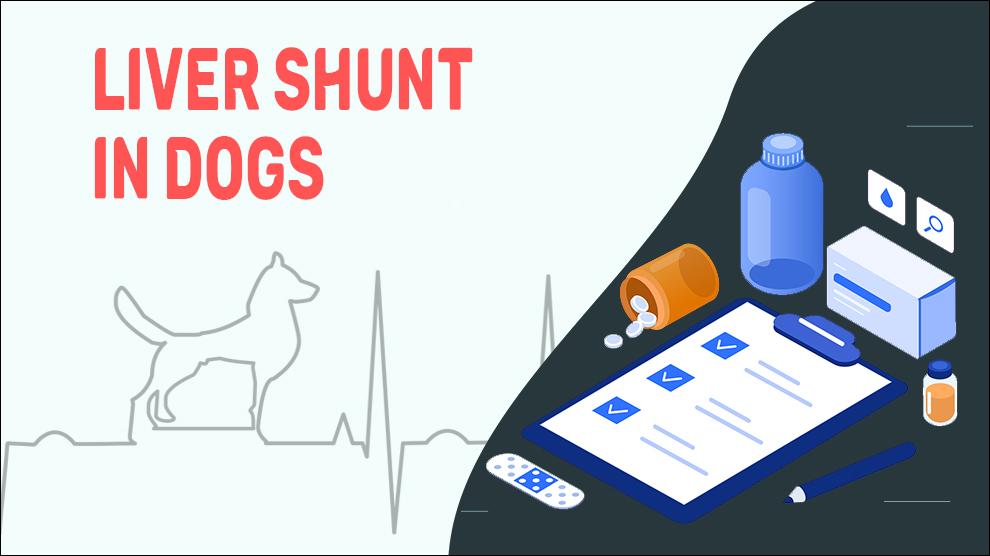What Is Liver Shunt In Dogs?
A liver shunt is a congenital condition in which blood flow bypasses the liver, leading to a buildup of toxins in the body. Symptoms may include vomiting, diarrhea, lethargy, and stunted growth.
Treatment options may include surgery, medication, and dietary changes. Certain dog breeds, such as Yorkshire Terriers and Maltese, may be more prone to liver shunt.
It is important to consult with a veterinarian for proper diagnosis and treatment. With appropriate management, many dogs with a liver shunt can live happy and healthy lives.
Symptoms Of Liver Shunt In Dogs
The symptoms of liver shunt can vary depending on the severity of the condition.
Some common symptoms include:
- Poor growth or failure to thrive
- Vomiting
- Stunted growth
- Loss of appetite
- Increased thirst and urination
- Lethargy
- Weakness
- Diarrhea
- Seizures
- Blindness
- Behavioral changes
Treatment Options For Liver Shunt In Dogs
The treatment of liver shunt depends on the severity of the condition. In mild cases, dietary management may be sufficient. This involves feeding a low-protein diet, which helps to reduce the workload of the liver.
In more severe cases, surgery may be necessary to correct the shunt. Surgery involves redirecting the blood flow so that it passes through the liver. This is a complex surgery and should only be performed by a specialist in veterinary surgery.
In addition to dietary management and surgery, medications may also be used to manage the symptoms of a liver shunt. These medications may include antibiotics, anti-seizure medications, and medications to reduce ammonia levels in the blood.
Home Remedies For Liver Shunt In Dogs
There are no home remedies for liver shunt, and treatment should be left to a veterinarian. However, there are some things that owners can do to help manage the symptoms of a liver shunt.
This may include feeding a low-protein diet, providing plenty of fresh water, and avoiding medications that can increase ammonia levels in the blood.
How To Prevent Liver Shunt In Dogs?
Unfortunately, there is no way to prevent liver shunts from occurring. However, breeders can reduce the risk of the condition by screening their breeding dogs for liver shunt before breeding.
It is important to choose a reputable breeder who has screened their dogs for liver shunt and other hereditary conditions.
Affected Dog Breeds Of Liver Shunt
The liver shunt can occur in any dog breed, but certain breeds are more susceptible to the condition than others.
These breeds include:
- Shih Tzus
- Yorkshire Terriers
- Maltese
- Cairn Terriers
- Miniature Schnauzers
- Dachshunds
- Irish Wolfhounds
- Old English Sheepdogs
- Golden Retrievers
Causes For Liver Shunt In Dogs
Causes:
A liver shunt is a congenital disorder, which means it is present from birth. In most cases, it is caused by a failure of the fetal liver to develop properly.
This can result in abnormal blood vessels that bypass the liver. The liver shunt can also be inherited, and certain breeds are more susceptible to the condition than others.
When To See A Vet For Liver Shunt In Dogs?
If you suspect that your dog has a liver shunt, it is important to see a veterinarian as soon as possible. Early diagnosis and treatment are essential for the best possible outcome.
Your veterinarian will perform a physical examination, blood tests, and imaging studies to diagnose the liver shunt. If your dog is diagnosed with a liver shunt, your veterinarian will discuss the best course of treatment for your dog.
Food Suggestions For Liver Shunt In Dogs
Dogs with liver shunts may require a special diet that is low in protein and high in carbohydrates. This can help to reduce the workload on the liver and prevent the buildup of toxins in the blood.
Your veterinarian may recommend a prescription diet or may provide you with specific guidelines for feeding your dog.
Some foods that may be beneficial for dogs with liver shunts include:
- Carbohydrates: Rice, sweet potatoes, and barley are all good sources of carbohydrates that can provide your dog with energy without putting stress on the liver.
- Vegetables: Green leafy vegetables, such as kale and spinach, can provide important vitamins and minerals without contributing to liver problems.
- Low-fat proteins: Lean meats, such as chicken and turkey, can be included in the diet in small amounts. Eggs can also be a good source of protein.
- Supplements: Omega-3 fatty acids, such as those found in fish oil supplements, may be beneficial for dogs with liver shunts. These supplements can help to reduce inflammation and improve liver function.
Conclusion
Liver shunts can be a serious condition in dogs that require prompt diagnosis and treatment. With appropriate management, many dogs with liver shunts can lead long and healthy lives.
It is important to work closely with your veterinarian to provide your dog with the best possible care and support. This may include dietary changes, medications, and regular monitoring of your dog's liver function.
With proper treatment and care, you can help your dog to live a happy and healthy life.

















